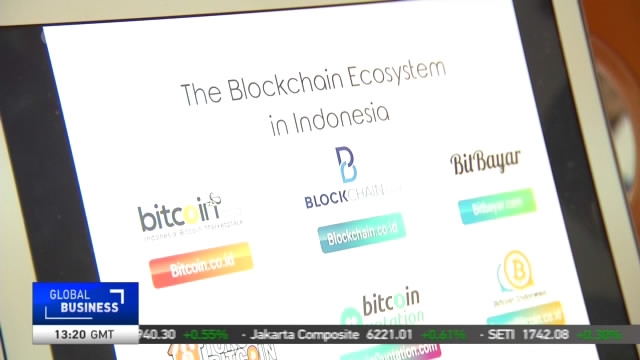
22:07, 22-Dec-2017
Indonesia Cryptocurrency: Bank Indonesia to ban Bitcoin transactions in 2018

Meanwhile, Indonesia's central bank is following in China's footsteps and is looking to ban the virtual currency completely on making many Bitcoin investors uncertain about the future. Bank Indonesia recently said that it aims to continue to strengthen and protect the country's currency as a legal tender. CGTN's Silkina Ahluwalia reports from Jakarta.
The Bitcoin bubble is close to bursting in Indonesia. The country's central bank is set issue a regulation to ban all forms of cryptocurrencies, including Bitcoin transactions. The move came after Bank Indonesia decided that e-money is not acceptable as an official form of payment in the country.
ENI PANGGABEAN, DIRECTOR PAYMENT SYSTEM DEPARTMENT, BANK INDONESIA "People should realize that virtual currencies are very volatile. Using Bitcoin as a currency opposes the country's laws and goes against the central bank's regulation on the process of payment transactions that we set in 2016. The law says that all parties are prohibited from using virtual currencies during payment."
Banning all forms of digital currencies is a way to protect and strengthen the rupiah as the country's legal tender. But as the value of Bitcoin continues to skyrocket, the demand for it is quickly increasing, with many people using the virtual money as an investment.
BHIMA YUDHISTIRA ECONOMIST "If Bitcoin is a matter of investment or commodity so it's not the responsibility of Bank Indonesia. Bank Indonesia needs to have coordination with the financial service board and with the ministry of communication to ban this kind of investment. So I think it is still a long way to go for Indonesia to ban bitcoin."
Experts are still unsure about the future of Bitcoin, but it still remains popular in Indonesia, with nearly 700,000 people across the country engaging in Bitcoin transactions.
SILKINA AHLUWALIA JAKARTA, INDONESIA "Digital currencies like Bitcoin could also be used to violate Indonesia's regulations on terrorism financing, money laundering and drug trafficking because most of the transactions can be made anonymously. Now, the Indonesian government is pushing people to invest in assets instead, especially those that can help to improve the country's economy."
Unless cryptocurrencies are regulated, the risk associated with this new form of money is high and that's one of the reasons why the central bank is not willing to embrace it just yet. Silkina Ahluwalia, CGTN, Jakarta.

SITEMAP
Copyright © 2018 CGTN. Beijing ICP prepared NO.16065310-3
Copyright © 2018 CGTN. Beijing ICP prepared NO.16065310-3